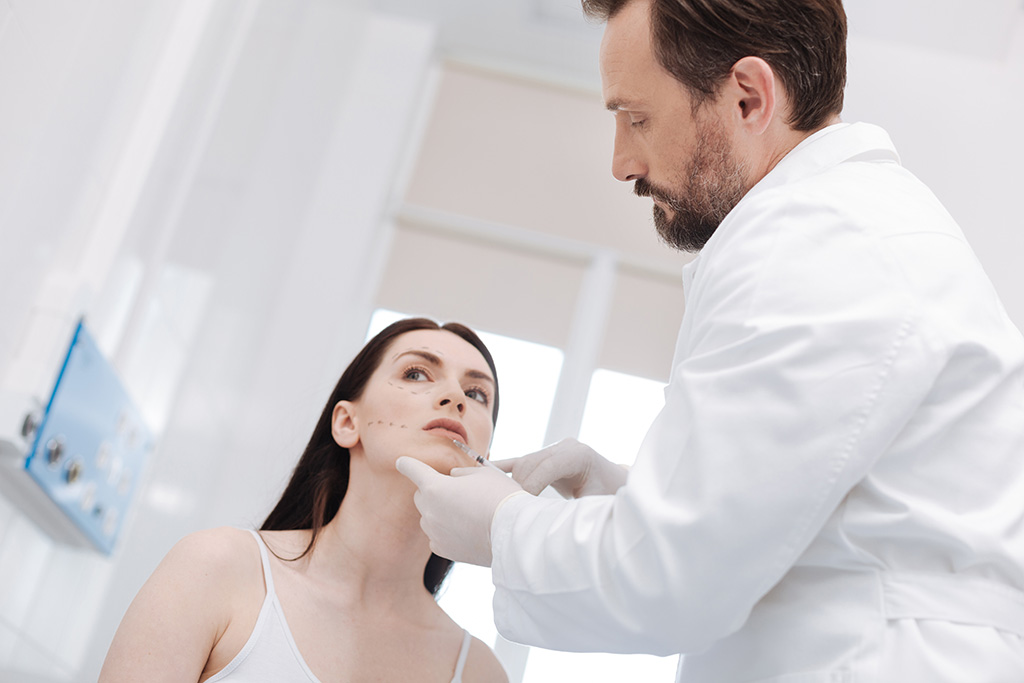
Adverse Event
“Adverse event” is the way we describe an undesirable outcome after treating a patient. A good provider will tell you that results driven medical skincare treatments almost always come with a risk for some adverse event. NOBODY wants that to be the case, but each and every body you treat is different, and every rule has an exception. We go above and beyond as care providers to prevent undesirable surprises while trying to get patients the best possible results. Sometimes, the line will get blurred between a great treatment and an adverse event. What I mean, is that pushing for more result in fewer treatments will require you to push the boundaries of safety. In theory, great outcomes with less treatment may sound like a good idea to your patient but mitigating the risks of more aggressive settings will fall to you as the provider. We all want to be a “rock star” for our patients, but never at the expense of our reputation or licensure. We talk a lot about consultations and the importance of setting realistic expectations for patients in our Med-Surg Programs. Consultations are the best opportunity to for providers to avoid the possibility of liability. I wholeheartedly believe that educating patients on the intricacies and potential risks involved in the treatments we provide will set everyone up for a good experience.
Personal Experience from a Master Aesthician
I once had a patient that wanted to do a laser resurfacing procedure in-office. She was sure this would be the most impactful result in the shortest amount of time. Upon review of her medical history, I noticed that she takes blood pressure medication. We talked a lot about the possibility that her blood pressure wouldn’t be controlled enough to put her through the trauma of full-field resurfacing. I explained that I would not do the resurfacing if her blood pressure was high. I explained the serious complications that could arise if we did the treatment anyway. She was unmovable.
On the day of her procedure, we took a baseline set of vitals, and guess what? Her blood pressure was extremely elevated. Because we discussed the potential for this to happen in consultation, I was able to plan ahead with an alternative to resurfacing. I shifted gears and gave her a less aggressive treatment. She wasn’t angry or upset because I prepared her. She was grateful that I was looking out for her wellbeing. She enjoyed the results she got from the treatment we wound up doing because it was a better fit for her needs. Tempering expectations and preparing patients will make your job easier, I promise.
Preventing an Adverse Event: Why Consultations Matter
I often hear aestheticians complain that consultations are a waste of time, and that the time they have spent talking could be time spent making income. Truth bomb: Consultation is an integral part of any service you provide. Knowing contraindications, allergies, sensitivities, downtime limitations, medications, lifestyle, and expectations are not optional.
If a patient has a pacemaker or internal defibrillator then all energy-based treatments are out. If you didn’t know because you skipped the consultation, and that person has heart complications, it is you who is liable. If your patient has a latex allergy and you didn’t find that out ahead of wearing latex gloves while treating, the reaction however big or small, is your fault and you will be held responsible. If the patient sleeps with their dog every night, you will need to make sure they know that doing so could cause an infection after their microneedling. If you don’t address these things prior to treatment, you will be the one who dropped the ball. If you talk about it ahead of time, you avoid the adverse event, or your non-compliant patient has nobody to blame for their bacterial infection but themselves. If your patient needs to be camera-ready in 5 days, and you didn’t find that out before making a magical plan for their total rejuvenation which requires 7 days of social downtime, you will be dropped like a bad habit by your patient. It doesn’t matter that he/she didn’t tell you that ahead of time. It matters that you didn’t have a consultation and ask them ahead of time. As they say, “an ounce of prevention is worth a pound of correction.”
In the Rare Circumstances an Adverse Event Occurs…
Some adverse events will be unavoidable. The patient who has an undiagnosed autoimmune disorder, or the patient who claims to be following post-care instructions, but isn’t healing well, the patient who takes it upon themselves to use different products than those that were given to them for post-care, the patient who didn’t disclose pertinent medical information, the device that malfunctions during treatment. All of these scenarios are real possibilities. When an unforeseen adverse event occurs, providers above all else, need to stay calm and in control. Here’s a few tips on what to, and what not to, do.
X Don’t diminish the situation.
X Don’t lie to your patient about what is happening.
X Don’t try to handle medical care outside of your scope of practice.
√ Do explain the situation.
√ Do call in your medical director when necessary.
√ Do file an adverse response report.
√ Do follow up with the patient
Med-Surg Academy in Phoenix: Laser and Aesthetic Academy
Hopefully, you will never have to use these rules for handling an unforeseen adverse event, but if you find yourself in an undesirable situation while treating a patient, you’ll need to know how to respond professionally. It could make or break your future as a medical aesthetician.
Looking to become a medical aesthetician? Check our out available Medical Assistant (MA), Licensed Practical Nurse (LPN), Registered Nurse (RN) Laser Training programs.